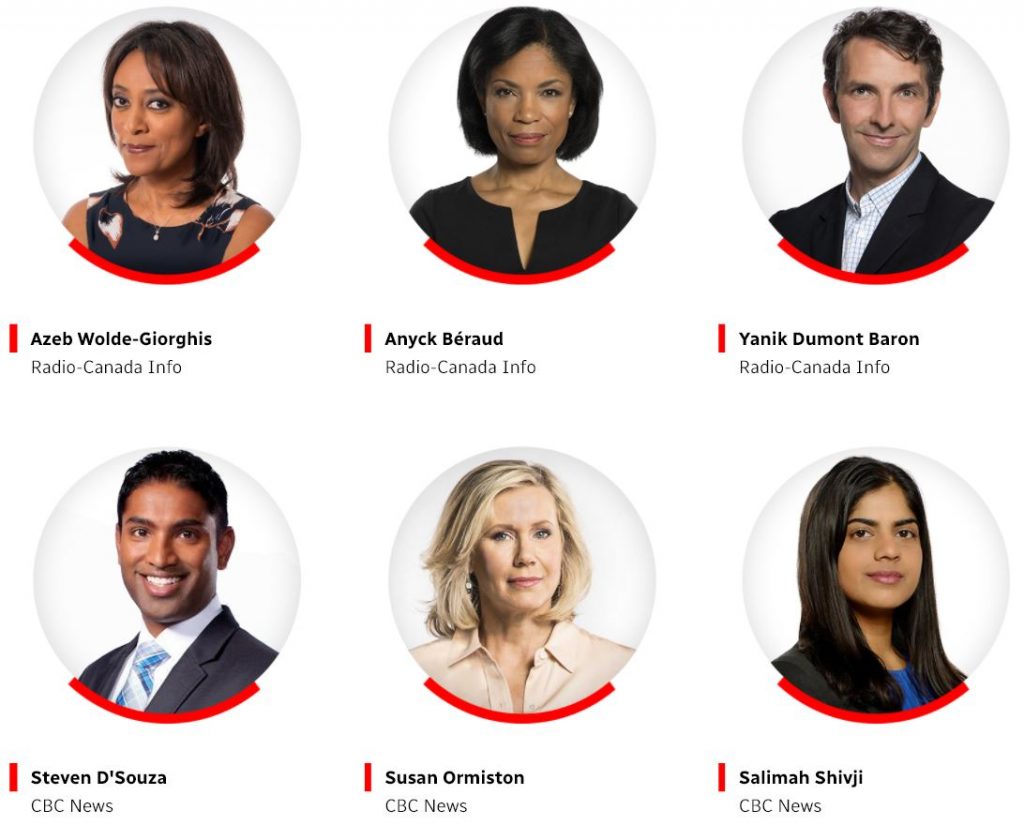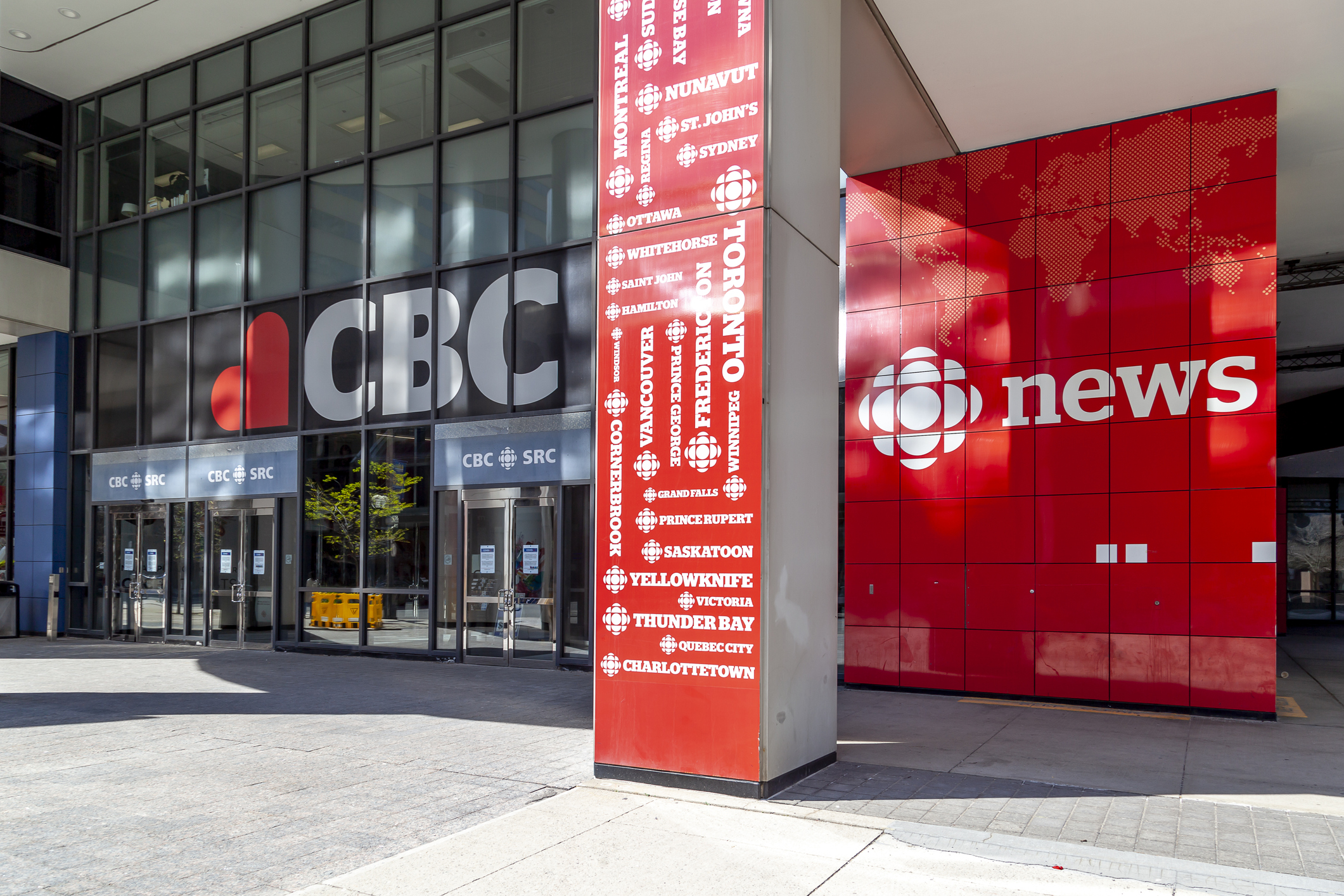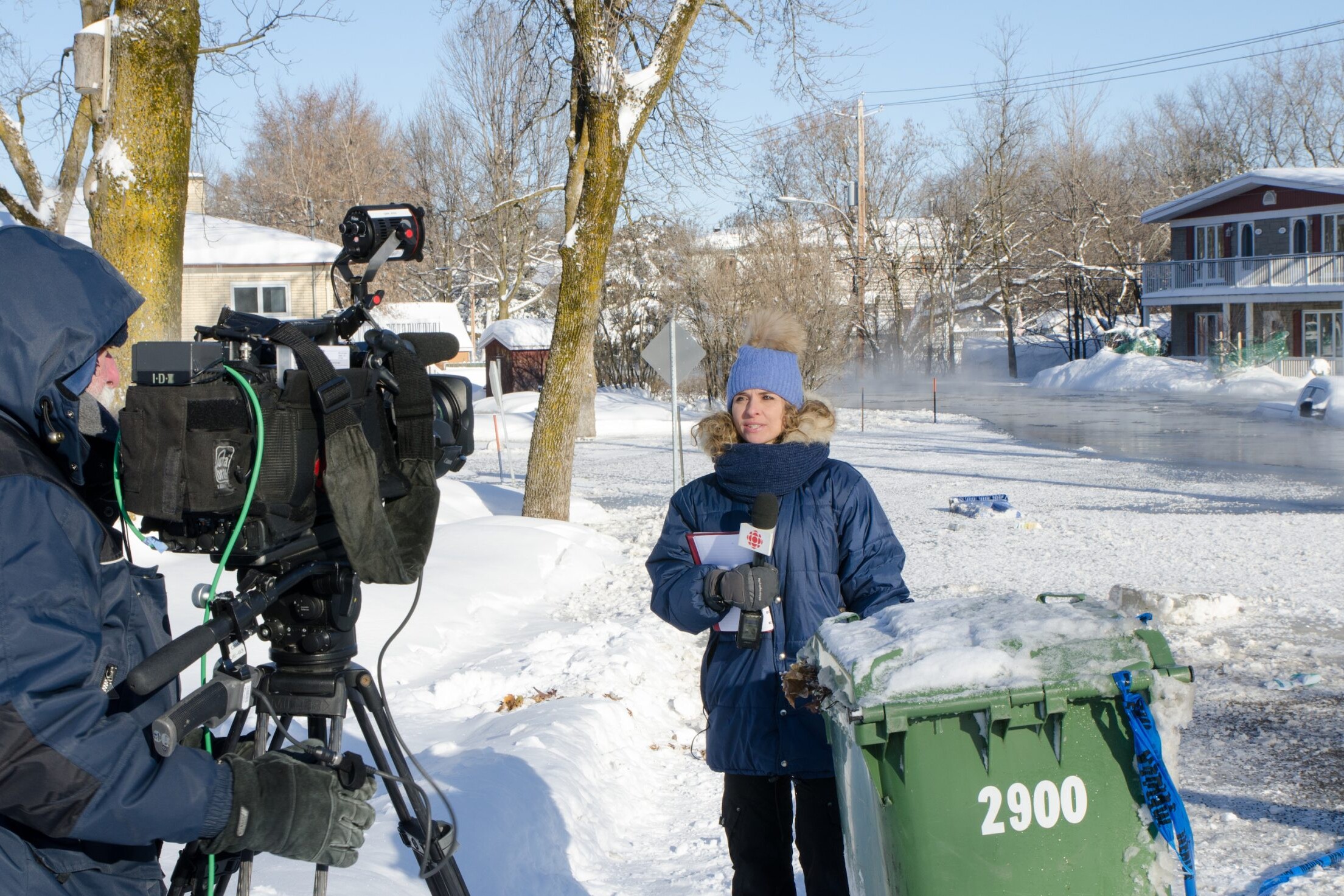INSIGHT
A year like no other at CBC/Radio-Canada
“You learn a lot about an organisation and yourself in a time of crisis”.
18 June 2021
Canadian public broadcaster CBC/Radio-Canada hosted its annual public meeting (APM) on 16 June. Featuring the organisation’s President & CEO, Catherine Tait; Board of Directors Chair, Michael Goldbloom; and six foreign correspondents, the event focused on themes such as diversity, local news, the rise of fake news, and ultimately the value and role of public service media in a year like no other.
In this event roundup, we highlight some of the key takeaways.
Pivoting from COVID-19
The entirely virtual event kicked off with a session featuring Tait and Goldbloom, who highlighted the public broadcaster’s role over the past year as well as future plans. In explaining the board’s response to the COVID-19 pandemic, Goldbloom said that the main priorities had been ensuring the safety of CBC/Radio-Canada’s 7,500 employees across the country and supporting management in informing Canadians. “On both of those counts I think we did pretty well … Something like 80% of our team was working from home, with all the stresses that came with that, but they rose to the occasion in an extraordinary way,” he said.
Tait said that the pandemic saw many pivots, with employees having to find innovative and creative solutions to produce content and serve the public, all while working from home. On the side of independent production, government funding to offset incremental costs associated with COVID-19 and external partnerships helped to keep productions running. The public broadcaster also contributed to the broader cultural community through partnerships such as that with Canada Council for the Arts to provide opportunities for artists to continue showcasing their work.
And these pivots have paid off. CBC/Radio-Canada’s value to the public has been demonstrable throughout the pandemic, with 24 million visitors per month to the broadcaster’s websites since January, Goldbloom said. “Canadians have been thirsty for information and CBC/Radio-Canada has been there to provide the information,” he added. “You learn a lot about an organisation and yourself in a time of crisis … and it was very gratifying that so many Canadians turned to us for information.”
Supporting local news
“I can say that our regions are the beating heart of what we do,” Tait said. The past year has seen the broadcaster’s president virtually visiting communities and stations across the country. Tait explained that out of the 20 multiplatform stations under Radio-Canada, 12 are in a linguistic minority area.
“I can say that our regions are the beating heart of what we do.”
“That is where we play such a vital role because for those people, for the Francophones who live in a place where they’re the minority, it is the true lifeline for culture and language,” she said. “We are in places where nobody else is. There might not be an alternative media for Francophones living in Edmonton. Similarly, in the north of Canada, CBC North provides services in eight Indigenous languages. No one else is there doing that.”
Similarly, Goldbloom emphasised not only the vital role of CBC/Radio-Canada in providing local coverage but also its obligation to support other private local news organisations and ensure their survival.
“We also have to recognise that we are going through a very difficult moment for private media … So, we have set up a way for Canadians to be able to support their private local media. It’s important for us to ensure that there is a media ecosystem that is strong in our country.”
Representing Canada’s diversity and identity
Tait said that the Canadian public’s response as well as reactions from employees to issues of diversity and inclusion had been “enormous”, with calls for an action plan from CBC/Radio-Canada and all public institutions to address systemic racism.
“It was an extraordinary year. We had on the one hand a pandemic, but we also had a huge social justice reckoning. And as the public broadcaster … we really feel we have a leadership role to play in addressing systemic racism, not only in how we present our stories to the public but to ensure that the public – all the public, all Canadians – see themselves in their public broadcaster,” Tait said.
She said that this representation extends not only in front of the camera but also behind it. CBC/Radio-Canada has produced its own content featuring diverse voices but is looking to collaborate with creative partners in the independent production community to produce “stories that are authentic” and reflective of diverse cultural groups.
But representing the country goes beyond Canada’s borders, both Tait and Goldbloom emphasised. Noting that CBC/Radio-Canada operates on a global stage, Tait said the broadcaster must not only promote and support Canadian culture globally but also transmit Canadian values, such as tolerance and acceptance. From the news perspective, she said CBC/Radio-Canada must also provide credible and safe information in the face of growing mis- and disinformation and target online hate, particularly against women and racialised women in journalism.
A Canadian news perspective
“I think today we need more and more journalists who work for public broadcasters,” journalist Azeb Wolde-Giorghis said. Wolde-Giorghis, a foreign correspondent with Radio-Canada Info, believes that in a divided world where journalists are increasingly considered agents of propaganda and fake news, the neutrality that comes with being a public media journalist could make a difference.
“We have that neutrality; we don’t make stories, we say what the facts are, we try to be as balanced as possible in our news reports. But, unfortunately, I would say today it’s a challenge to be a journalist … we do it because we’re passionate about it, we want to inform, and of course we love meeting people and telling stories … but I would say the situation for journalists has deteriorated, unfortunately.”
“We have that neutrality; we don’t make stories, we say what the facts are…”
Wolde-Giorghis shared these remarks during a panel discussion as part of the 2021 APM. She was one of six journalists who spoke about the broader issues of being a foreign correspondent and answered questions submitted by CBC/Radio-Canada’s audiences.

According to Céline Galipeau, a Radio-Canada journalist and host of session two of the APM, foreign correspondents not only promote Canada’s culture and values but also provide a “Canadian perspective” to international news, allowing Canadians a better understanding of the global contexts of events that affect them. But CBC/Radio-Canada’s foreign correspondents, like many journalists around the world, have had to contend with numerous challenges, including practical changes to the newsgathering process and learning new, more effective ways to communicate with audiences. Steven D’Souza of CBC News also said the pandemic brought with it an awareness of different pressure points and inequalities in society.
Speaking on the rise of “fake news”, the journalists noted how the term has not only stirred up anti-media rhetoric but also worsened mis- and disinformation, with fact-checking and verification adding another layer to the work of a journalist. And the term “fake news” is not reserved for use by politicians; rather, it has been co-opted by members of the public who approach journalists with accusations of partiality, bias, and an agenda.
“What I’ve noticed the most is how fake news as a slogan, a brand … has become like a cancer. I hear it now in other places in the world – I’ve heard it in Canada, I’ve heard it in Europe, I’ve heard it from world leaders … It’s something that is used now as a tool to diminish journalists, to diminish what we do … to call us biased, slanted, tainted. It’s had an enormous impact,” Susan Ormiston of CBC News said.
Despite the challenges, the foreign correspondents positively reflected on working for a public broadcaster and its influence on society. Yanik Dumont Baron of Radio-Canada Info said that while private media are seen as associated with private interests or political agendas, the public broadcaster is seen as more neutral. D’Souza agreed and explained that working for a public broadcaster lends to more open communication.
“I feel that’s a responsibility that we as foreign correspondents hold. We’re not only representing the CBC but we’re representing Canada as well. CBC has such a great reputation around the world … and I felt it was my responsibility to continue that and to prove by our work that we maintain a high level of journalism,” D’Souza said.
Watch the annual public meeting here
Header Image: CBC/Radio-Canada Annual Public Meeting 2021 Credit: CBC/Radio-Canada
Related Posts
9th June 2021
PMA welcomes CBC/Radio-Canada’s sustainability strategy
New five-year plan aims to transform…
11th November 2020
Insight | What CBC’s newsrooms are doing to deliver on pledge to improve diversity, inclusivity
Half a year has passed since killing of…



